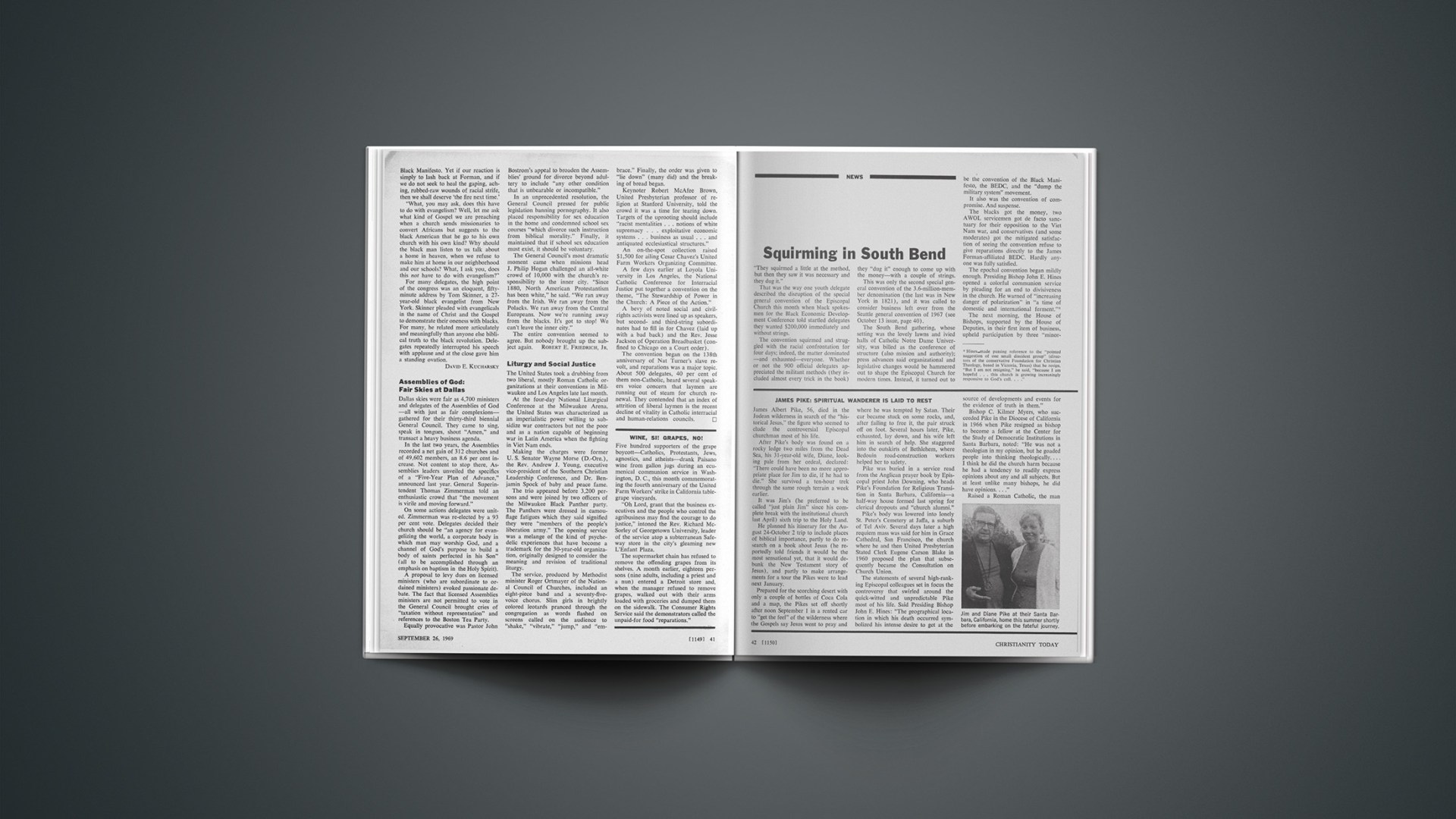Seeing it in black and white sent a shock wave through delegates to the special general convention of the Episcopal Church. There it was in cold print in the Chicago Tribune and the New York Times: “Episcopalians Vote $200,000 as Reparations to Blacks”; “Legislators of the Episcopal Church submitted today to a demand of the Black Economic Development Conference …” (see News, page 42). Then the National Observer carried a page-one story with a picture of a sullen James Forman standing in front of Episcopal headquarters in May, when he made an initial reparations demand on Episcopal leaders.
Could this really be what we did? many delegates began asking themselves in the sobering light of retrospect. Yes, the Episcopal Church did vote the money for the BEDC, although a compromise measure attempted to blunt the sharp reality of the action by making the more acceptable National Committee of Black Churchmen the conduit for the funds.
What the black militants wanted and made crystal clear was that the money was to go straight to the BEDC without strings. The gut issue: Would the church support a militant organization that has refused to repudiate the Black Manifesto and is willing to use violence if necessary to pull down the American government in order to gain economic equality for blacks?
Canon Junius Carter, a black Episcopal minister from Pittsburgh, put it succinctly: “If you follow our advice, then, and only then, will we know that you trust us.”
We believe that both the black militants and the Episcopal Church have erred. The church is to be commended for coming to grips with what surely is the number-one social issue of America. But its fancy footwork in setting up the NCBC as a fence has fooled—and pleased—almost no one. The church should have responded to the demand just as unequivocally and pointedly as it was made. If it was trust, honesty and forthrightness the blacks wanted, they deserved an answer in those terms.
The black militants, we believe, were wrong in assuming that love and brotherhood could be proved only by an affirmative answer to their coercive demands and threats. That is not love; it’s extortion. And if it were right for the blacks to say they would accept money from the church only on their own terms, why would it not have been right—by the same reasoning—for whites to demand that the BEDC first repudiate the manifesto ideology (a move the BEDC refused to make)?
The love Christ taught cannot be coerced. Nor does love always signify giving in at any cost, no matter how great the need for justice. The basis for brotherhood is not complete agreement.
The Episcopal Church showed courage in agonizing over the vexing and momentous problem of black self-determination. But it should have firmly refused to capitulate to persons whose only document of record was well described in the ironic words of Presiding Bishop John E. Hines to the Executive Council May 21:
The language and basic philosophy of [the manifesto] are calculatedly revolutionary, Marxist, inflammatory, anti-Semitic, and anti-Christian-establishment, violent, and destructive of any democratic political process—so as to shock, challenge, frighten, and, if possible, overwhelm the institutions to which it is directed. It was no surprise that throughout the white establishment the immediate response was—with few exceptions—one of outrage, furious hostility and disbelief.










